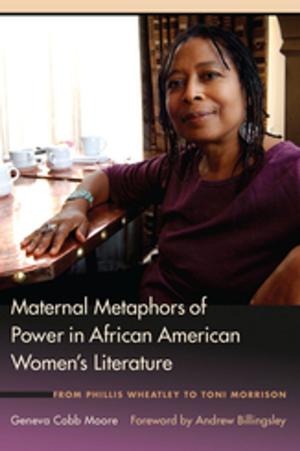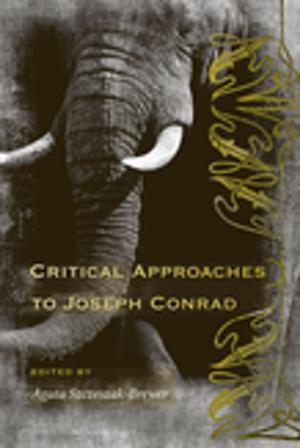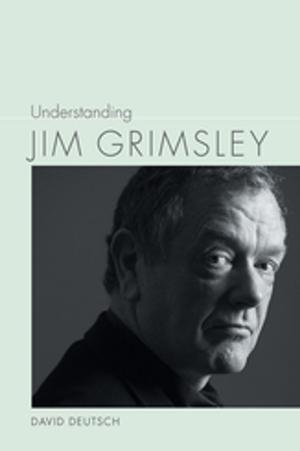The Ex-suicide
A Mountain Brook Novel
Nonfiction, Entertainment, Drama, Anthologies, Fiction & Literature, Literary| Author: | Katherine Clark | ISBN: | 9781611177770 |
| Publisher: | University of South Carolina Press | Publication: | July 18, 2017 |
| Imprint: | University of South Carolina Press | Language: | English |
| Author: | Katherine Clark |
| ISBN: | 9781611177770 |
| Publisher: | University of South Carolina Press |
| Publication: | July 18, 2017 |
| Imprint: | University of South Carolina Press |
| Language: | English |
The Ex-Suicide, Katherine Clark’s fourth Mountain Brook novel, is a satirical comedy of manners about a prominent Alabama family living across the street from the Birmingham Country Club. The house happens to be where the writer Walker Percy lived as a child with his family until his father committed suicide in the attic with a shotgun. The only son of the current residents, Hamilton “Ham” Whitmire has several Ivy League degrees as well as a generous trust fund but is striving mainly to be an “ex-suicide,” as defined by Percy’s writings. As a result of Ham’s intellectual aspirations and philosophical principles, and thanks to his trust fund, he has succeeded only in figuring out what he does not want to do with his life. Unfortunately this comprises just about all known occupations, but especially any involving the family business, which his imperious, society-matron mother insists he take over from his aging father. When the novel opens, the thirty-seven-year-old son has recently returned to his hometown and taken a teaching position at a historically black college in the “other” Birmingham―not the one where he grew up. As an anxiety-ridden, panic-attack-prone depressive in a perpetual state of existential crisis, Ham must plan carefully how to get through each day without putting his life in the hands of the mental-health-care professionals. But, according to his mother, he must also take over the reins of the family business, get married, and carry on the family name. Ham isn’t in Birmingham long before he learns his college is also in an existential crisis and fighting to keep its doors open. Even worse, circumstances force him to take at least an interest in the family business. While seeking refuge and stability in the waiting room of his therapist’s office, he finds himself in the emotional thrall of a beautiful old flame who is in the midst of a devastating divorce. She is anxious to have Ham back in her life, at least as an escort, but probably more. Will Ham buckle under all the pressures―as Percy’s father famously did in the attic of what is now his parents’ home? Or will he be able to pull himself together and live up to society’s (and his mother’s) expectations? Fortunately Ham is one of Norman Laney’s former pupils, and Laney never gives up on a student. In the midst of Ham’s crisis, Laney steps into the breach in hopes that Ham chooses life as an ex-suicide.
The Ex-Suicide, Katherine Clark’s fourth Mountain Brook novel, is a satirical comedy of manners about a prominent Alabama family living across the street from the Birmingham Country Club. The house happens to be where the writer Walker Percy lived as a child with his family until his father committed suicide in the attic with a shotgun. The only son of the current residents, Hamilton “Ham” Whitmire has several Ivy League degrees as well as a generous trust fund but is striving mainly to be an “ex-suicide,” as defined by Percy’s writings. As a result of Ham’s intellectual aspirations and philosophical principles, and thanks to his trust fund, he has succeeded only in figuring out what he does not want to do with his life. Unfortunately this comprises just about all known occupations, but especially any involving the family business, which his imperious, society-matron mother insists he take over from his aging father. When the novel opens, the thirty-seven-year-old son has recently returned to his hometown and taken a teaching position at a historically black college in the “other” Birmingham―not the one where he grew up. As an anxiety-ridden, panic-attack-prone depressive in a perpetual state of existential crisis, Ham must plan carefully how to get through each day without putting his life in the hands of the mental-health-care professionals. But, according to his mother, he must also take over the reins of the family business, get married, and carry on the family name. Ham isn’t in Birmingham long before he learns his college is also in an existential crisis and fighting to keep its doors open. Even worse, circumstances force him to take at least an interest in the family business. While seeking refuge and stability in the waiting room of his therapist’s office, he finds himself in the emotional thrall of a beautiful old flame who is in the midst of a devastating divorce. She is anxious to have Ham back in her life, at least as an escort, but probably more. Will Ham buckle under all the pressures―as Percy’s father famously did in the attic of what is now his parents’ home? Or will he be able to pull himself together and live up to society’s (and his mother’s) expectations? Fortunately Ham is one of Norman Laney’s former pupils, and Laney never gives up on a student. In the midst of Ham’s crisis, Laney steps into the breach in hopes that Ham chooses life as an ex-suicide.















